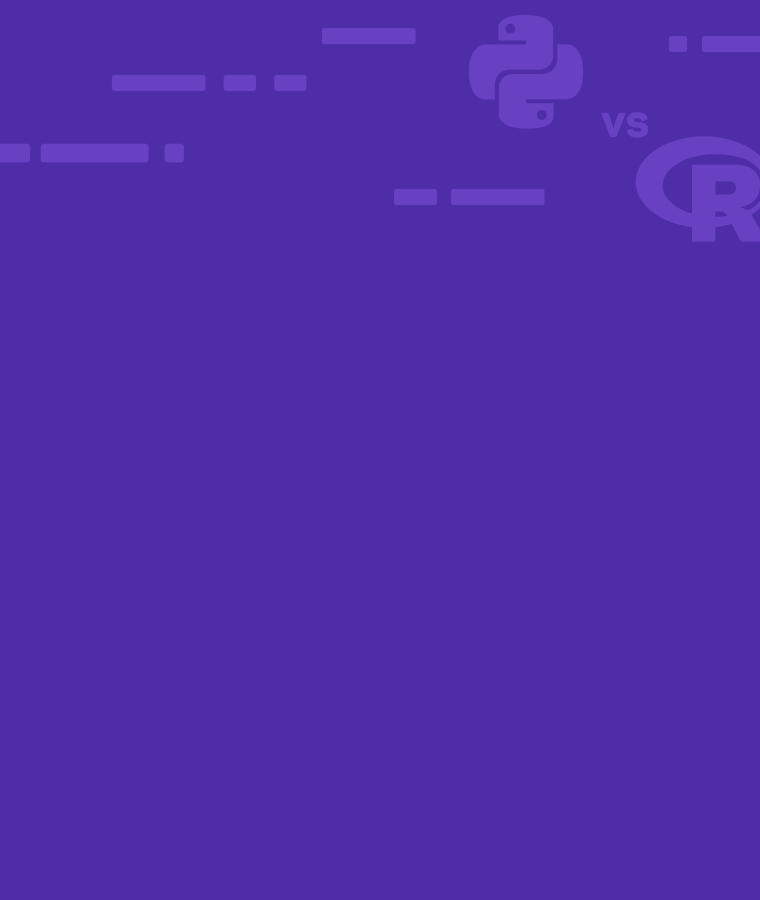
What Does A Data Scientist Do?
Discover what a data scientist is, what they do & what you need to land one of the most in-demand and profitable careers
Big data is big business. One after another, companies across the globe use data to solve all kinds of problems and make better business decisions.
From fintech startups to innovative healthcare companies, more data means better decisions, better products and more profits.
This puts data scientists and other data-related roles in a great position.
In 2011, Harvard Business Review published an article where data science was labelled “the sexiest job of the 21st century”. The demand for data scientists has only grown since. According to the 2020 LinkedIn U.S. Emerging Jobs Report, data science has grown rapidly in recent years.
It comes as no surprise that more and more people are interested in becoming data scientists. But what is a data scientist? What do they do? What do you need to become a data scientist? Keep reading!
What is a Data Scientist?
In a few words: a data scientist is responsible for:
- collecting,
- processing,
- extracting insights from data.
The ultimate goal of data analysis is to find what’s relevant from vast amounts of data. With that, businesses can make better decisions.
Data science has four pillars:
- Programming: Coding is important for data scientists. Programming languages are powerful tools that help data scientists collect, process and visualize data. They need other tech knowledge, too. APIs and cloud computing are rapidly becoming key assets for data science roles.
- Theory: Data scientists need a solid background in math and statistics to analyse data and develop advanced applications, such as machine learning models.
- Communication: Data scientists can translate insights for decision-makers and explain why they are valuable to the company.
- Business domain knowledge: Understanding processes, workings, and key aspects of the business is essential.
A Day in the Life of a Data Scientist
Data scientists spend most of their time analyzing data to find relevant information. We can summarize this process in the following diagram:

What does a data scientist do?
The first step to performing data analysis is collecting the data.
Data scientists have to be ready to work with all kinds of data types and sources. To do so, data scientists rely on programming languages.
The next step is data cleaning.
Raw data often comes with errors that make it unsuitable for advanced analytics. High-quality data is essential. If the data that feeds the model is wrong, the outcomes of the model will be also wrong. So, data scientists spend most of their time in the data cleaning process.
Once the data is clean, data scientists can do magic.
Here it is important to make a distinction between data scientists and data analysts.
Data analysts focus on getting insights from structured data stored in companies’ data warehouses.
Data scientists make predictions and find patterns.
How? By:
- Building machine learning models to predict the future.
- Classifying images.
- Using natural language processing techniques to extract information from text.
All these techniques help data scientists to get insightful results from data. But if decision-makers don’t understand what the results mean, their effort is useless.
To convert results into value, data scientists need good communication skills. They need to make their analyses understandable for non-technical people and stakeholders.
Educational Requirements to Become a Data Scientist
Despite the growing number of degrees in data science, the discipline is still new. This means that there isn’t yet a standard curriculum to land a data science job. Many data scientists start with a degree in computer science or another STEM career.
But before you spend a ton of time in university, you can see if data science is right for you with SoloLearn’s free Data Science with Python course. .
What Skills do Data Scientists Have?
Data scientists need a significant set of skills. While it may seem overwhelming at first sight, but there’s no need to stress. You don’t need to master every skill before applying to your first job. Just start with the basic skills and be willing to learn.
Below you can find a list of skills that any data scientist should have:
- Programming languages. Coding is mandatory for data scientists. There are many programming languages for data science.
- Statistical and computational analysis. Mathematics and statistics are fundamental in data science.
- Machine learning. Machine learning allows computers to learn from data and make predictions.
- Cloud technology. Cloud computing is one of the hottest topics in data science. With the rise of cloud providers, such as Amazon Web Services (AWS), and Microsoft Azure, a whole data workflow can take place within the cloud. Cloud skills are a must for any aspiring data scientist.
- Communication skills. Data scientists need communication skills to work across departments and share their insights.
- Business skills. A data scientist will feel lost in data if she doesn’t know what to look for. Having a basic knowledge of the sector or industry you are working on is crucial to making sense of data.
Salary expectations
Salary expectations are an important factor when looking for new job opportunities. Here is the good news: data science is today one of the most in-demand and lucrative careers.
Despite the need for data scientists, the job market hasn’t found a balance. As of 2020, there was a data science shortage of around 250,000 professionals.
This means intense competition between companies. . . and higher salaries for data professionals.
But how much can a data scientist earn?
According to Glassdoor, the average salary for data scientists in the U.S. as of July 2022 is $117,212 a year.

Conclusion
We hope you enjoyed this article. Data science is one of the most in-demand, prosperous, and exciting careers. The discipline is growing, and there is no sign of slowing down in the coming future. So are you ready to jump into a career as a data scientist? If so, head on over to the free SoloLearn Data Science course and get started today.


